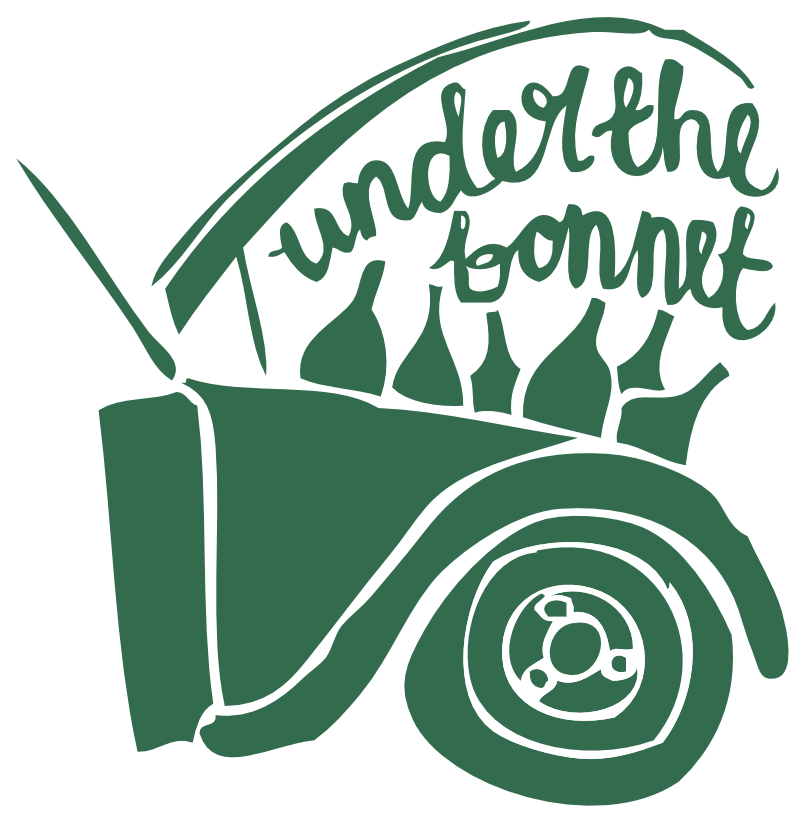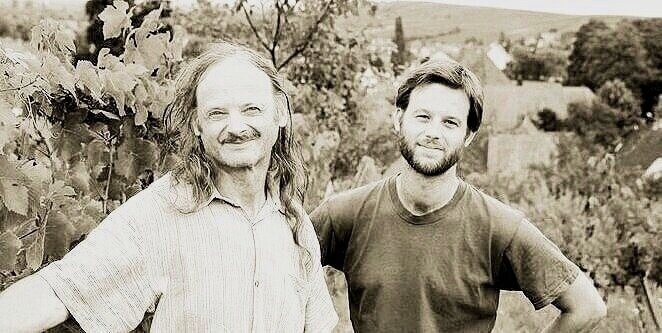Domaine Durrmann
Winemakers
Andre, Anna & Yann Durrmann
Type of agriculture
Organic
Vineyard area
9 ha
Country, Region, Subregion
The Durrmann family are making wine from their old family house in the middle of Andlau, a beautiful village nestled on the first slopes of the Vosges mountains south-west of Strasbourg.
With a surface of only 1,5 hectare at the beginning in 1979, the domaine gradually reached a total surface of seven hectares after André decided to move back to farming and pieced it together from abandoned vineyard sites that were hard to work and no longer commercially viable, coming from his grandfather who made shoes to supplement the farm income. This lack of an established and family-based wine making tradition initially presented a weakness because the whole business had to be built, but it is also a strength because the company wasn't limited to traditional customs, and therefore has always been oriented toward innovation.
The vineyards are now scattered on about 30 spots around the village. They added parcels progressively when opportunities showed up and looked also for different soil qualities so that the cuvées express several terroirs.
The Durrmans think that the quality of the wine is created by the work in the vineyard, that’s why their objective is its preservation. The wines are being disturbed as little as possible. They do not add any oenological product to change the natural taste of the wines. The production is partly vinified in inox tank and partly in old wooden casks.
Son Yann has worked in the domaine since he was a child and officially took over the running of the business a year ago. André was among the first wave of organic winemakers in Alsace converting in 1998, Yann has then taken this a step further applying a more natural approach in the cellar. Selected cuvées are produced without sulfur addition since 2007.
The Durrmanns are true eco warriors only having electric cars and using solar energy for hot water and heating.
Read up on our interview with Yann in April 2020 here.
FOR ANY UK WHOLESALE AND STOCK ENQUIRIES, PLEASE CONTACT HELLO@WINESUTB.COM
Wines
Classic Yann, naming a cuvee with an elaborate pun on the wine being a little bit crazy, and the historic - now outlawed name - for Pinot Gris (Tokay d'Alsace). For appelation reasons, this is technically white, but as Yann notes 'anyone can see the colour themselves'
Due to high temperatures and drought in 2022, Yann's wines had a longer, slower fermentation than usual. But he's happy with what it has lent the wines, the Pinot Blanc in particular being more generous, with a nicely integrated reduction.
Riesling grown over Gres for Yann is usually the easiest drinking, a little softer, but a less floral profile, more pithy citrus and precise acidity, nimble and easy, a nice little tannic structure in '22.
Granite, for Yann yields the most complexity for his Riesling, a more floral profile with a long, mineral structure. Really nicely integrated tannins in '22 lending a beautiful frame.
Riesling on Schist makes its terroir apparent with a livewire acidity and snap, rocky, chalky and mineral. Long and driving, a little structure from 2022.
The Riesling for Krax - macerated through its fermentation - has a lovely softness thanks to the sandstone, which brings a lovely pithy bitterness to balance. Aromatic complexity over a savoury core.
The 2022 Kastelberg shows great balance, a parcel that can risk over-ripeness, picked early to retain its freshness. Chiseled, mineral and persistently salty, great length and complexity.
Dressed in the tropical shirt of a warmer vintage, soft fleshy fruit is lifted with refreshing, thirst-bursting acidity. A litre of Lilt for grownups.
A hazy, zippy pet nat, with lean red fruit and a bright lick of acidity. Fresh, fun zero sulphur sparkling.
One of Yann’s focused single terroir Rieslings. From parcels on granite, which brings a more floral profile, and a long, soaring mineral structure.
For the first time in 2021 Yann has picked Gewurz from parcels over both granite and gres, with heavy losses to mildew in the granite parcels. A little more width and tropical fruit than prior years.
A different blend for 2021, with the result being a bright, fruity version of the Durrmann Rosé with a little more width and lift.
A delicate balance of acidity, structure, and fruit, the Pinot Blanc is particularly easeful for 2021
A cooler vintage in 2021, over Gres we have a less floral profile, more pithy citrus and precise acidity, nimble and easy.
A first for us - Yann's Sylvaner is usually saved for Edelzwicker and his beloved Vin Chaud- but with negoce fruit now used for those, Yann was able to make a terroir cuvee with his old-vine Sylvaner.
In earlier years, Yann has picked Riesling for this cuvee from an area known as Crax. With yields low in 2021, he added fruit from another vineyard and ever-honest, decided to change the name (slightly.)
Pithy, electrified fruit, the litre format is well-suited to such a drinkable number. Refreshing mineral length that evaporates like rain on hot sandstone.
Made in tribute to the Spanish Ska-punk band, Ska-P. As you do. Lively Muscat, picked early so as not to be over-aromatic, with bright acidity.
Aromatic, vibrant and textural orange pet nat.
Funky, spicy and complex macerated Riesling.
A medium bodied, juicy, fruity and spicy Rosé.
Zesty, clean mineral. Yann’s place-explicit wines become an even closer definition of their terroir each year.
Crunchy, smokey and herbal. Raw berries, blackberry and plum with playful tannins.
Unmistakably mineral-driven Pinot on schist, a little more flesh on the bones for the 2020, and very clean.
100% Gewurztraminer. Aged in stainless steel without filtration. No added sulphur.
100% Riesling. Long pressing (6 hours) in a pneumatic press. Spontaneous fermentation in aged wooden barrels. No filtration before bottling. No added sulphur.
100% Riesling. Skins are fermented during a couple of months in small tanks. After that they are distilled twice in an alembic.
100% Pinot Noir. Skins are fermented during a couple of months in small tanks. After that they are distilled twice in an alembic.
100% Mirabelle Plum. Skins are fermented during a couple of months in small tanks. After that they are distilled twice in an alembic.
Vibrant and zippy Riesling, with the Grés terroir bringing a less aromatic profile and a straighter spine, tightly wound acidity.

































Pet-nat of Macerated Pinot Blanc split with direct-press juice of the same alongside Pinot Gris. Much more mineral & savoury than previously, with developed fruit, intense with flavour. Quince and bay leaf!